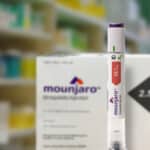
Will I Still Get All The Nutritional Value I Need On Semaglutide?
Will I Still Get All The Nutritional Value I Need On Semaglutide? Semaglutide is a medication that is commonly used to treat type 2 diabetes. It belongs to a class of drugs called glucagon-like peptide-1 (GLP-1) receptor agonists, which work by increasing insulin production and reducing glucose production in the liver.
In addition to its blood sugar-lowering effects, Semaglutide has also been found to have other benefits such as weight loss and cardiovascular risk reduction.
Understanding Nutritional Deficiencies and their Causes
Nutritional deficiencies occur when the body does not receive enough essential nutrients to function properly. These essential nutrients include vitamins, minerals, and other substances that are necessary for the body’s growth, development, and overall health.
There are several common causes of nutritional deficiencies, including poor diet, malabsorption issues, certain medical conditions, and medications.
How Semaglutide Affects Nutritional Absorption in the Body
Semaglutide can affect the body’s absorption of nutrients in several ways.
- Firstly, it slows down the emptying of the stomach, which can lead to a feeling of fullness and reduced appetite. This can result in a decrease in food intake and potentially lead to a reduced intake of essential nutrients.
- Secondly, Semaglutide can affect the secretion of digestive enzymes and bile acids, which are necessary for the breakdown and absorption of nutrients in the small intestine. This can impair the body’s ability to absorb certain vitamins and minerals.
The Link Between Semaglutide and Vitamin B12 Deficiency
One of the most well-known nutritional deficiencies associated with Semaglutide use is Vitamin B12 deficiency. Vitamin B12 is primarily found in animal-based foods, such as meat, fish, eggs, and dairy products. Semaglutide can interfere with the absorption of Vitamin B12 in the stomach and small intestine, leading to lower levels of this essential nutrient in the body. Symptoms of Vitamin B12 deficiency can include fatigue, weakness, numbness or tingling in the hands and feet, difficulty walking, and memory problems.
Semaglutide and Iron Deficiency: What You Need to Know
Iron deficiency is another potential nutritional deficiency that can occur with Semaglutide use. Iron is necessary for the production of red blood cells and the transport of oxygen throughout the body.
Semaglutide can affect the absorption of iron in the small intestine, leading to lower levels of this essential mineral. Symptoms of iron deficiency can include fatigue, weakness, pale skin, shortness of breath, and difficulty concentrating.
The Role of Semaglutide in Calcium and Vitamin D Deficiencies
Calcium and Vitamin D deficiencies are also possible with Semaglutide use. Calcium is important for bone health, while Vitamin D helps the body absorb calcium from the diet.
Semaglutide can interfere with the absorption of both calcium and Vitamin D in the small intestine, leading to lower levels of these nutrients in the body. Symptoms of calcium and Vitamin D deficiencies can include bone pain, muscle weakness, and an increased risk of fractures.
Semaglutide and Zinc Deficiency: What You Should Be Aware Of
Zinc deficiency is another potential nutritional deficiency that can occur with Semaglutide use. Zinc is important for immune function, wound healing, and DNA synthesis. Semaglutide can affect the absorption of zinc in the small intestine, leading to lower levels of this essential mineral.
Symptoms of zinc deficiency can include hair loss, poor wound healing, frequent infections, and changes in taste or smell.
Managing Nutritional Deficiencies While Taking Semaglutide

Suppressing Appetite
If you are taking Semaglutide and are concerned about potential nutritional deficiencies, there are several steps you can take to manage them.
- Firstly, it is important to eat a balanced diet that includes a variety of nutrient-rich foods. This can help ensure that you are getting an adequate intake of essential vitamins and minerals.
- Secondly, it may be necessary to take supplements to address specific deficiencies. For example, if you are experiencing Vitamin B12 deficiency, your healthcare provider may recommend Vitamin B12 injections or oral supplements.
Tips for Maintaining a Balanced Diet While on Semaglutide
Maintaining a balanced diet while taking Semaglutide is crucial for managing potential nutritional deficiencies. Here are some tips to help you achieve this:
1. Include a variety of nutrient-rich foods in your diet, such as fruits, vegetables, whole grains, lean proteins, and healthy fats.
2. Pay attention to portion sizes and practice mindful eating to avoid overeating.
3. Limit your intake of processed foods, sugary drinks, and high-fat foods.
4. Stay hydrated by drinking plenty of water throughout the day.
5. Consider working with a registered dietitian who can help you create a personalized meal plan that meets your nutritional needs.
Conclusion: Will I Still Get All The Nutritional Value I Need On Semaglutide?
In conclusion, Semaglutide can have an impact on the body’s absorption of essential nutrients, leading to potential nutritional deficiencies. It is important for individuals taking Semaglutide to be aware of these potential risks and take steps to manage them. This includes maintaining a balanced diet, considering supplementation if necessary, and regularly monitoring nutritional status with the help of a healthcare provider.
By taking these steps, individuals can ensure that they are getting the nutrients they need to support their overall health and well-being while taking Semaglutide.






